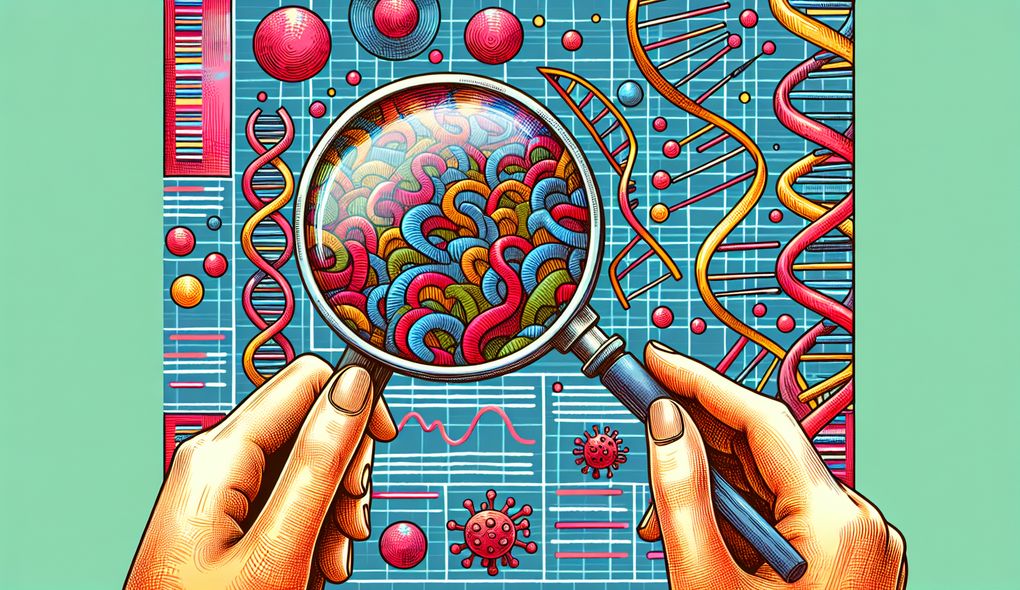Have you helped patients determine the most appropriate genetic test for their needs? Can you explain the process?
JUNIOR LEVEL

Sample answer to the question:
Yes, I have helped patients determine the most appropriate genetic test for their needs. The process involves first understanding the individual patient's medical history, family history, and specific concerns or goals for genetic testing. I then provide information about the different types of genetic tests available, explaining the benefits, risks, and implications of each test. I take the time to listen to the patient's questions and concerns, ensuring that they have a clear understanding of the information. Together, we evaluate the options and make a decision on the most appropriate genetic test for their needs.
Here is a more solid answer:
Yes, I have helped numerous patients determine the most appropriate genetic test for their needs. To do this, I follow a systematic process that starts with gathering information about the patient's medical history and their specific reasons for pursuing genetic testing. I then explain the different types of genetic tests available, such as diagnostic tests, predictive tests, and carrier screening. I prioritize conveying scientific information in a way that is easily understandable to non-experts, using analogies and visuals when necessary. Throughout the process, I employ active listening skills to ensure that the patient's concerns and questions are addressed. By demonstrating empathy and understanding, I create a supportive environment where patients feel comfortable discussing their genetic testing options. Ultimately, I guide the patient in making an informed decision on the most appropriate test for their needs.
Why is this a more solid answer?
The solid answer provides more specific details and examples to demonstrate the candidate's experience and abilities in helping patients determine the most appropriate genetic test. It also emphasizes the candidate's knowledge of genetic testing procedures and implications. However, it could be further improved by including specific examples of how the candidate has successfully helped patients in the past and highlighting their ability to interpret and convey scientific information.
An example of a exceptional answer:
Absolutely, helping patients determine the most appropriate genetic test for their needs is a fundamental aspect of my role as a Genetic Testing Advisor. In my previous position, I assisted a diverse range of patients in this process, including those seeking diagnostic testing for genetic disorders, individuals considering predictive testing for inherited conditions, and couples interested in carrier screening prior to starting a family. To ensure an accurate assessment, I meticulously review their medical history and family background, paying close attention to any red flags or specific concerns. I then provide detailed explanations about the different tests available, including their purpose, limitations, and potential implications. By utilizing my strong communication skills, I effectively convey complex scientific information in a clear and accessible manner, utilizing visuals, analogies, and real-life examples whenever necessary. Throughout the process, I actively listen to patients' questions and concerns, addressing them with empathy and compassion. By considering their unique circumstances and personal preferences, I collaboratively guide them towards the most suitable genetic test, ensuring they are well-informed and comfortable with their decision.
Why is this an exceptional answer?
The exceptional answer provides specific details and examples that demonstrate the candidate's extensive experience in helping patients determine the most appropriate genetic test for their needs. The candidate discusses working with a diverse range of patients and different types of genetic testing. The answer also highlights the candidate's ability to interpret and convey scientific information, as well as their empathy and compassion in addressing patients' concerns. Additionally, the answer emphasizes the candidate's commitment to personalized care and ensuring that patients are well-informed and comfortable with their decisions.
How to prepare for this question:
- Review the different types of genetic tests, their purposes, and potential implications.
- Reflect on past experiences where you assisted patients in determining the most appropriate genetic test and prepare specific examples to showcase your abilities.
- Practice explaining complex scientific information in a clear and accessible manner, using analogies, visuals, or real-life examples.
- Develop active listening skills and empathy through role-playing exercises or by seeking feedback from colleagues or mentors on your communication style.
- Stay up-to-date with the latest advancements in genetics and genetic testing technologies to effectively guide patients.
What are interviewers evaluating with this question?
- Knowledge of genetic testing procedures and implications.
- Ability to interpret and convey scientific information to non-experts.
- Empathy and understanding for patients' concerns and questions.
- Active listening and educational skills.

